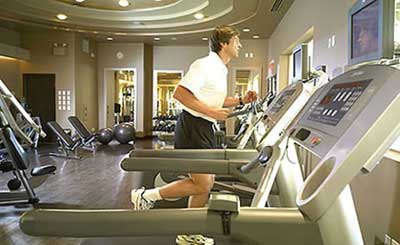Recently, scientists have reported that there is such a drug could help us gain some of the advantages of physical activity without working up a sweat.
Sedentary mice that took the drug for four weeks burned more calories and had less fat than untreated mice. Moreover, when tested on a treadmill, they could run about 44 percent farther and 23 percent longer than untreated mice. In addition, how well those results might translate to people is an open question. However, researchers belief such a drug might help treat diabetes, obesity, and people with medical conditions that keep them from exercising, will be found someday.
Ron Evans, of the Salk Institute for Biological Studies in La Jolla, Calif., and the Howard Hughes Medical Institute reports the work with colleagues in a paper published online by the journal Cell. According to Evans, an author of the study, he and his colleagues have exercised in a pill. Moreover, he said, "With no exercise, you can take a drug and chemically mimic it."
The no-exercise drug is called AICAR. Previous experiments suggest that it might protect against gaining weight on a high-fat diet that might make it useful for treating obesity. Nevertheless, it would have to be taken for a long time, so its safety in people would have to be assured.
Evans and his colleagues have also reported that in mice that did exercise training, a second drug made their workout much more effective at boosting endurance. After a month of taking that drug and exercising, mice could run 68 percent longer and 70 percent farther than other mice that exercised but did not get the drug.
Researchers have studied both drugs for other uses. The no-exercise drug is in advanced human testing to see if it can prevent a complication of heart bypass surgery. In addition, Evans noted the drugs might prove irresistible for professional athletes who seek an illegal edge. He said his team has developed detection tests for use by the World Anti-Doping Agency. Moreover, Evans said he has no financial interest in either drug or the test.
According to the researchers, Resveratrol, a substance being studied for anti-aging effects, has also been reported to enable mice to run farther before exhaustion without exercise training. Nevertheless, the drugs in the new study appear to act more specifically on a process in muscles that boosts endurance.
According to Evans, it still takes more than just altered muscles to turn a sedentary mouse into a distance runner. Moreover, he added, “honestly, I just don't know how that happens. Whether it would happen in a person, I do not know. I think it's a small miracle it happened at all." In fact, Evans said that when the experiment with sedentary mice was suggested by an outside scientist who was reviewing the lab's research, "I didn't think it was going to work."
Experts who study muscle agreed that a drug like AICAR might prove useful someday in treating diabetes and obesity. In addition, according to the experts, people who cannot exercise because of a medical condition like heart failure or joint pain might also benefit from such a drug. According to Laurie Goodyear of the Joslin Diabetes Center in Boston, many drug companies are working on such drugs in diabetes because in animals, AICAR stimulates muscles to eliminate sugar from the blood.
However, Eric Hoffman of the Children's National Medical Center in Washington, D.C., noted that AICAR mimics only aerobic exercise, not the strength training that might be more useful to bedridden people or the elderly, for example. He also cautioned that it is not precisely clear whether the new mouse results can be reproduced in people.
Goodyear said exercise has such widespread advantages in the body that she doubts any one-pill will ever be able to supply all of them. She said that for the majority of people, it would be better to do physical activity than to take a pill.
Thank you for visiting SurayBlog










No comments:
Post a Comment